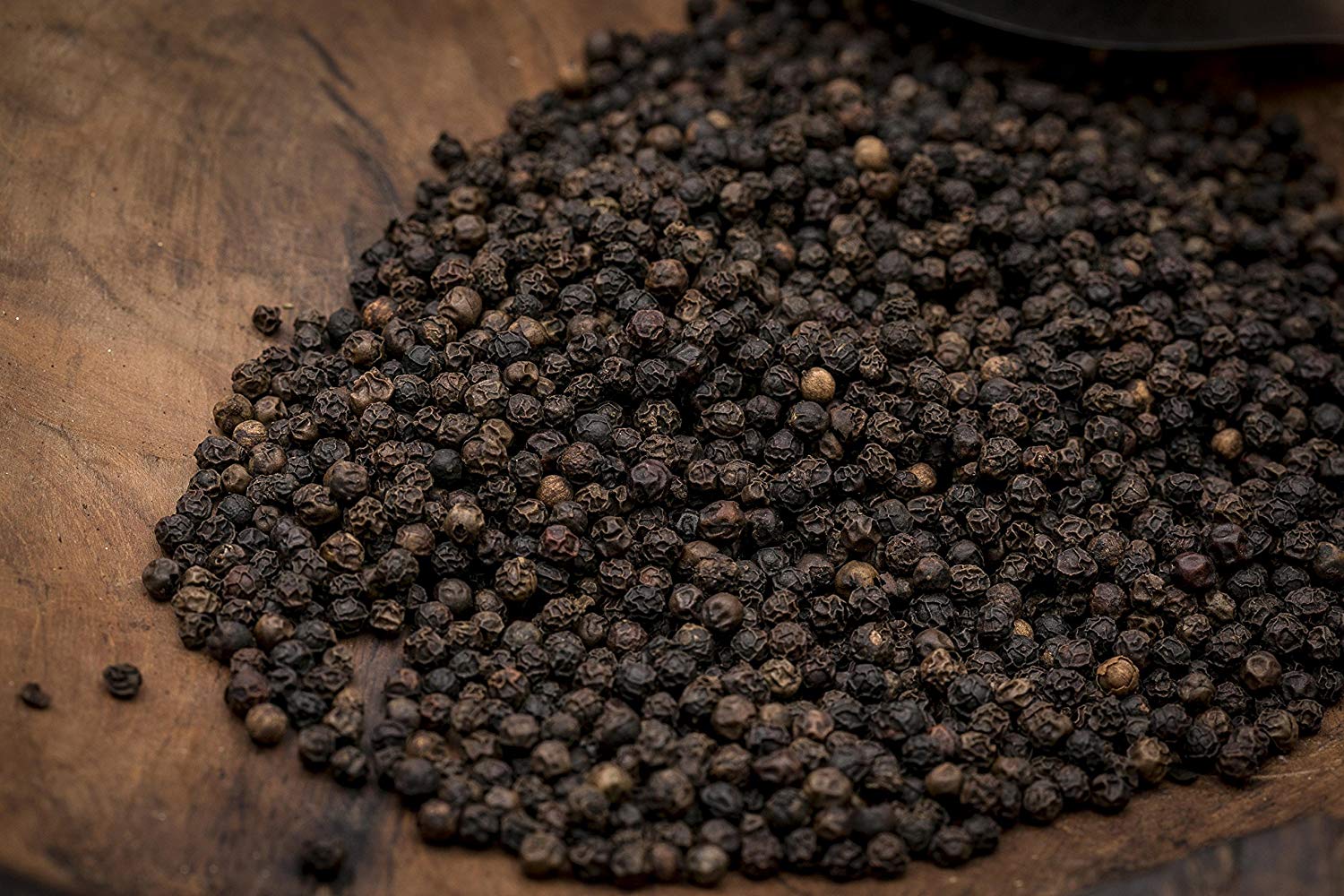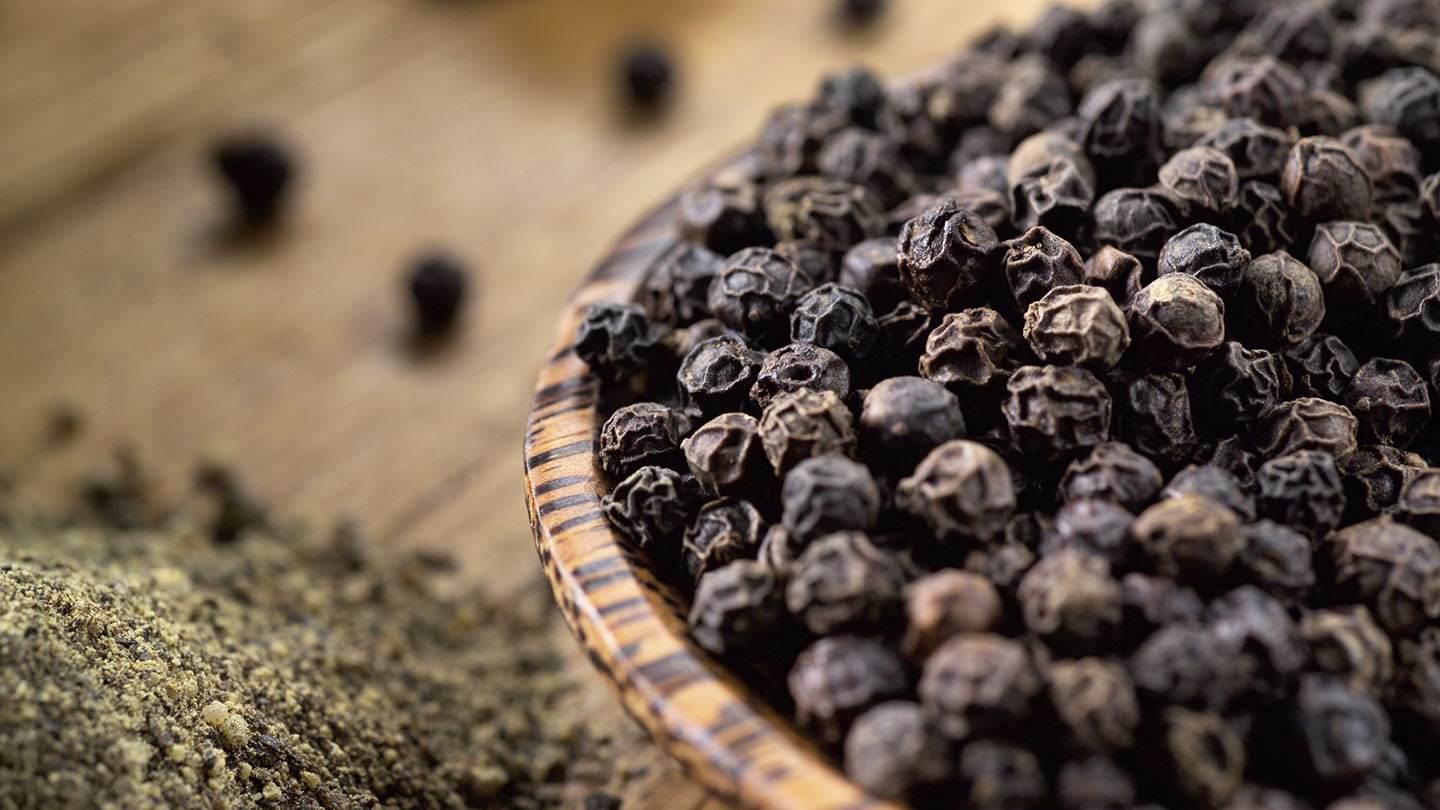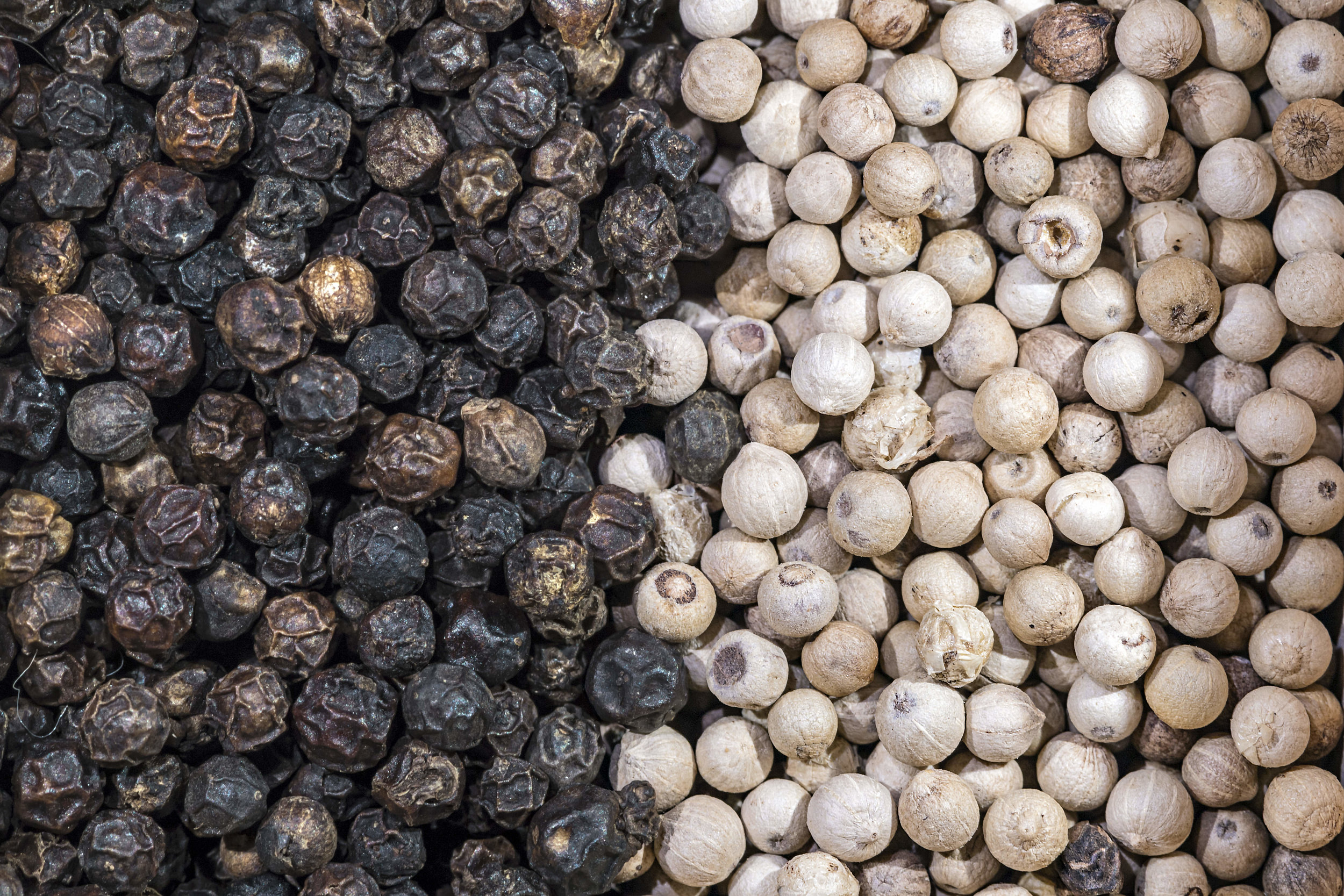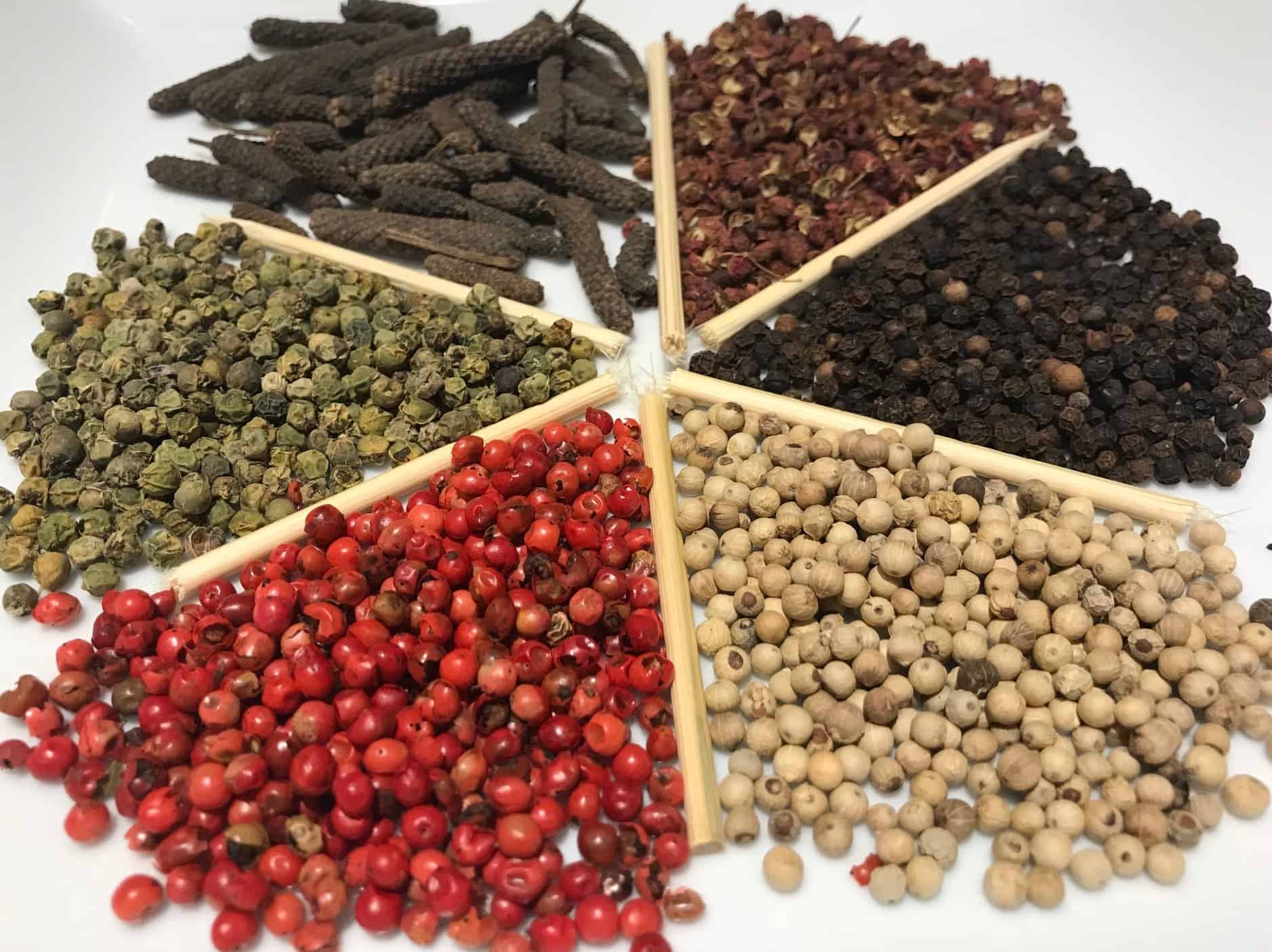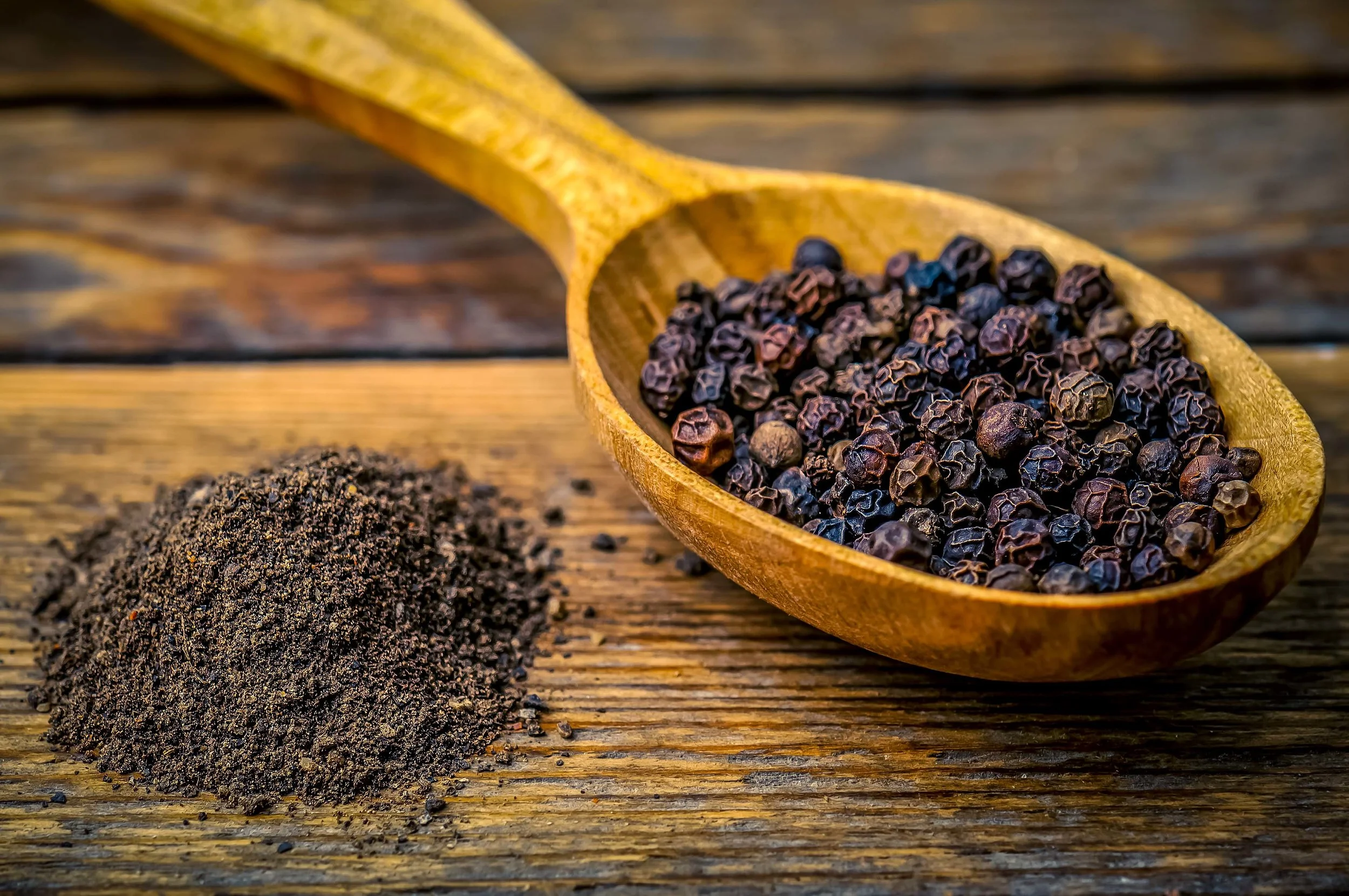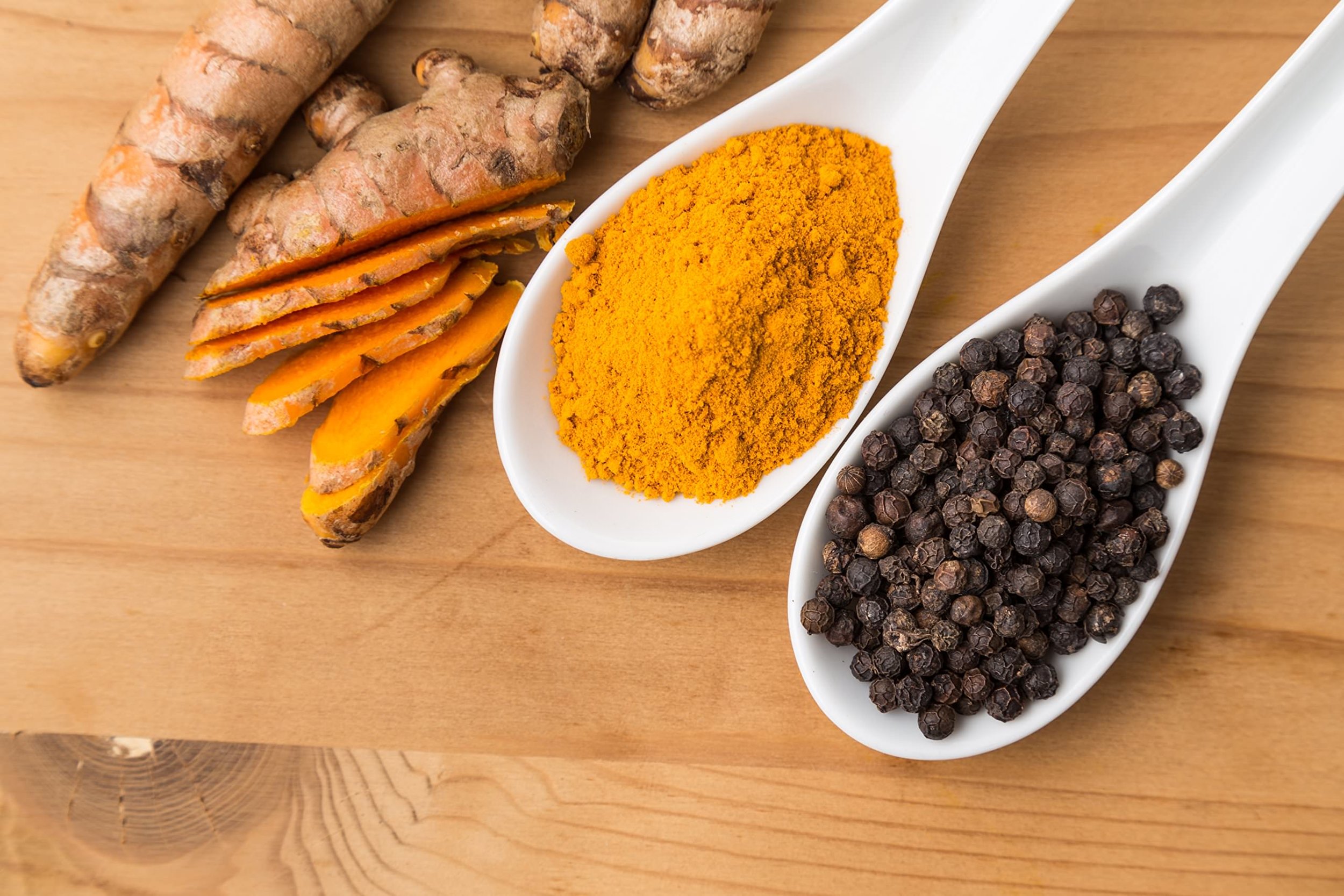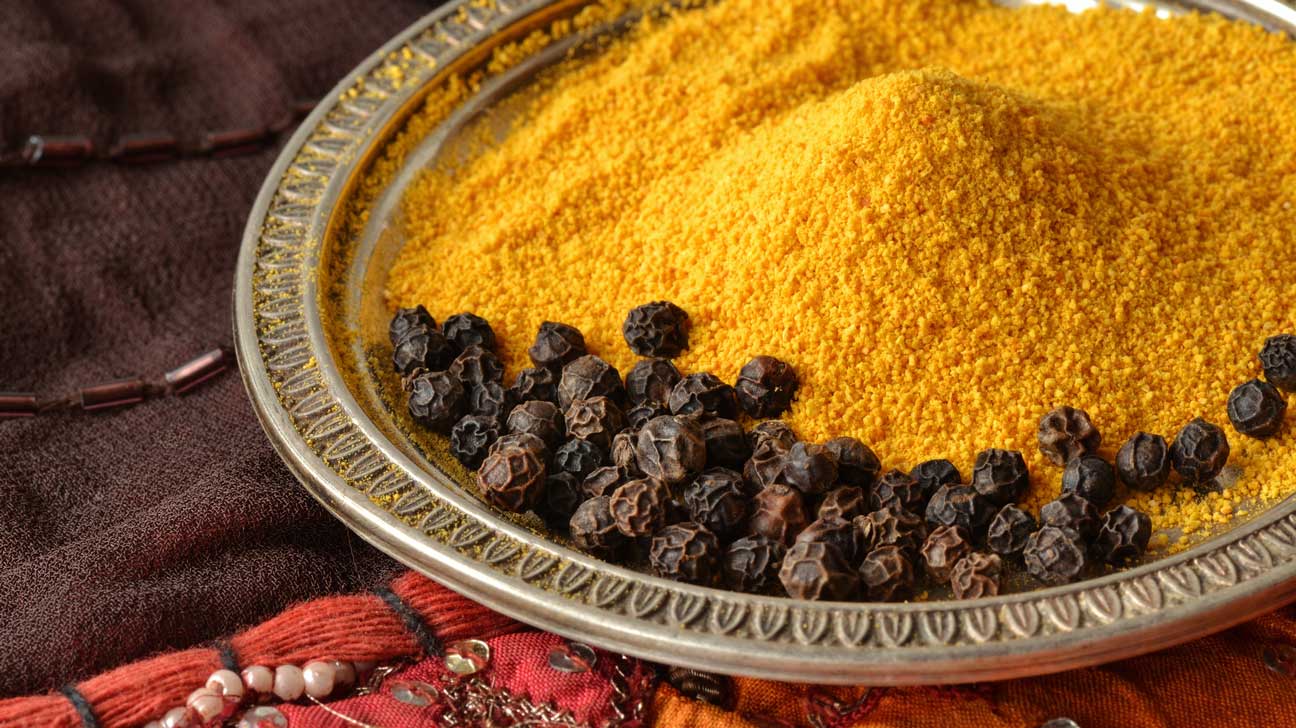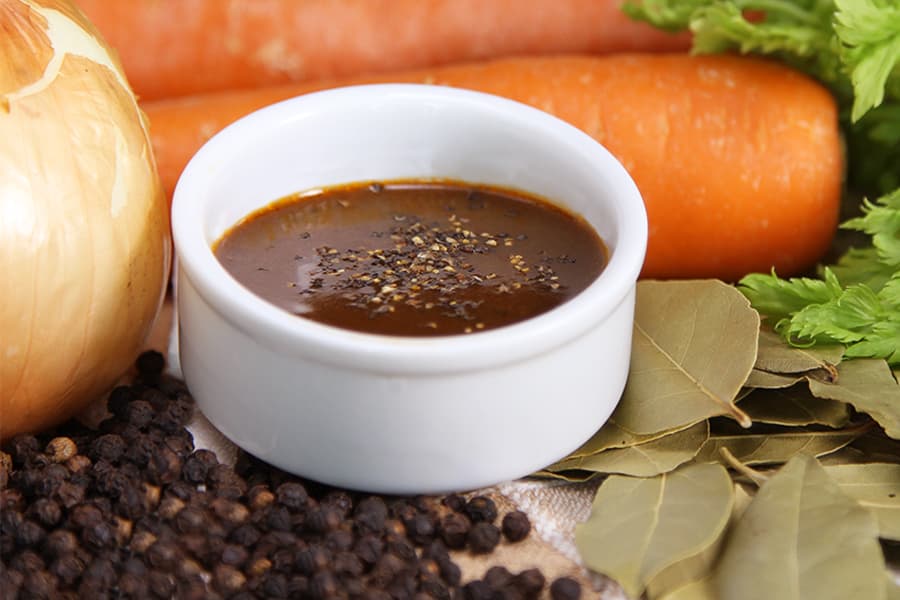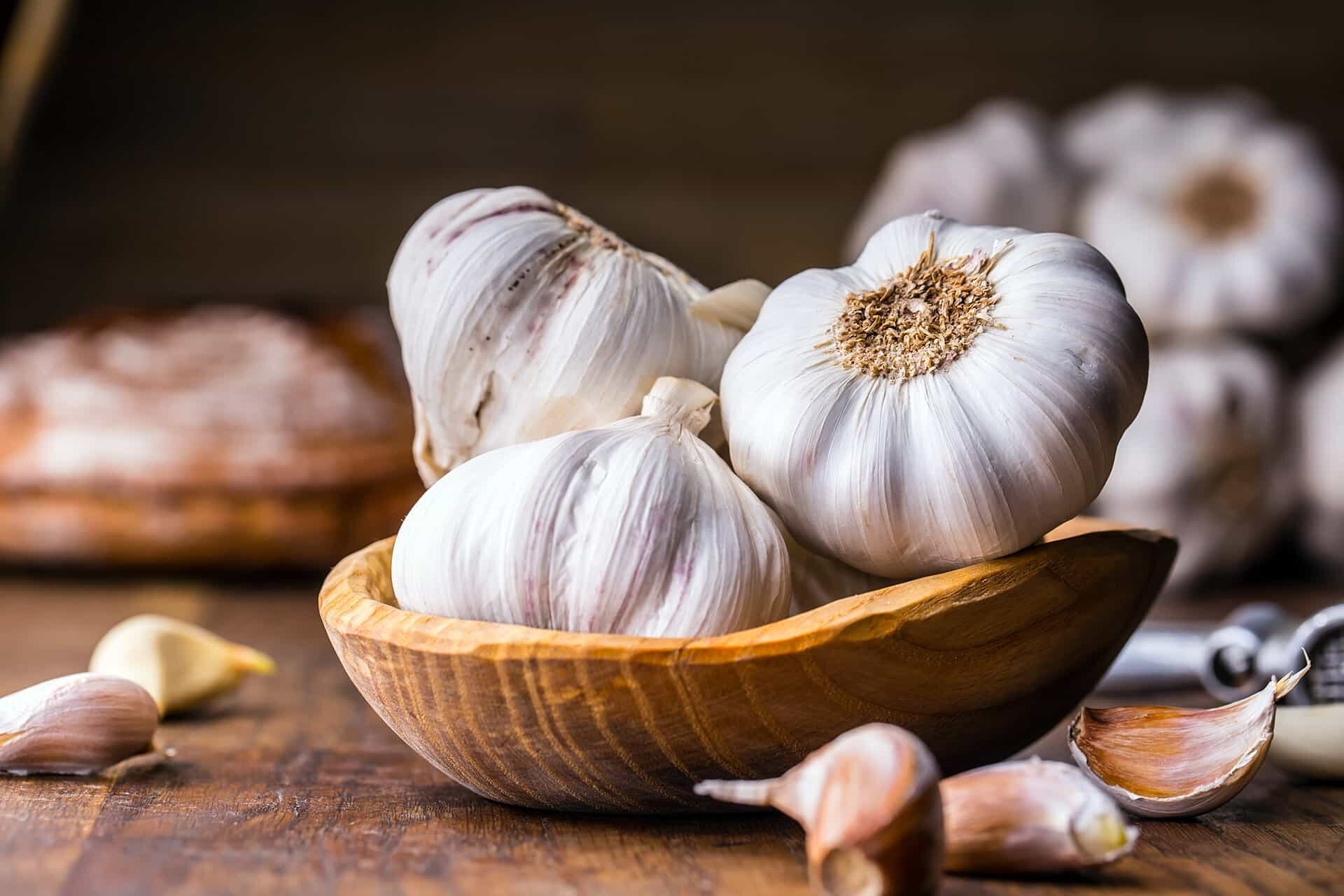Black Pepper Health Benefits and Side Effects
Written by: Christopher Karam | ✔️ Medically Reviewed by: Dr. Riad M., M.D - G.P and Micheal B., M.D | Last Updated: 2020 April 27
Table of Contents
- Break Down
- Health Benefits
- Side Effects
- Nutrition Facts
- Recommendation
- Frequently Asked Questions (FAQ)
- Related Articles
- Sources
- Buy Black Pepper Now
Break down and Background
What is black pepper?
Black pepper is derived from a flowering berry vine that’s indigenous to Kerala, India's tropical Malabar Coast. Peppercorns belong to the family of Piperaceae and the plant is given the scientific name “Piper Nigrum”.
Black pepper is usually planted and cultivated in similar ways of planting a fruit, it’s then cooked and dried to create the black pepper spice.
The long history of black pepper stems is native to the spice trade in India as well as Asia, thousands of years ago. The spice is mostly native to South India and a few other areas in Southern Asia.
Spices like black pepper have always been used in Indian cuisine, all the way back in ancient India around 2060 BC.
The main source of peppercorns back in the days was in the Malabar Coast in Kerala southern India, which was the main source of black pepper exports at that time.
A few thousands of years ago, peppercorns were an important trade ingredient, because of this reason it was also known as “Black Gold” and “King of Spices”. Due to black pepper’s popularity, it was used as a form of currency during trading.
Before the 16th century, black pepper was being grown in the Indonesian islands of Java and Sumatra, Madagascar, and in most countries of Southeast Asia. The flavor and nutrients found in black pepper give its healthy culinary status.
Black pepper is added to almost every imaginable savory dish, recipe, and some desserts too, due to its remarkably strong and unique flavor.
It’s become a fundamental spice for most cultures, being presented at every dinner table as well as salt. Most modern professional restaurants include black pepper in some form, because of it’s mild spice.
Here’s the list of every different kind of peppercorn:
Tellicherry Black Pepper - 7.4% to 9.3% piperine (the most common, and spiciest)
Malabar Black Pepper - 7.4% to 9.3% piperine (dark black)
Pink Pepper - 3.8% to 5.1% piperine (red peppercorns)
Green Pepper - 4.4% piperine (young, unripened)
Sarawak White Pepper - 2% piperine (bright shade of white, not spicy)
Muntok White Pepper - 1.4% piperine (least common, sweet, and least spiciest)
The most commonly used ones are black peppercorns, red peppercorns, and white peppercorns, respectively.
The darker the color of the peppercorn, the higher the concentration of the alkaloid called piperine. Not to be confused with the spiciness of capsaicin, which is found in hot peppers.
Peppercorns have tons of essential oils that are used for cooking nowadays, that black pepper has been the world’s most traded spice, it alone amounts to about 20% of imported spices worldwide for hundreds of years.
- ● 2.31 ounces; Glass bottle.
- ● Organic Indian Malabar pepper, to lend familiar (but extra tasty) bite to any dish.
- ● Certified Organic; Kosher.
- ● Simply Organic is committed to supporting organic and sustainable farming communities.
- ● A Brand of Frontier Co-op, responsible to people and planet.
Black pepper isn't only used to spice up your food, but it’s also used as a form of medicine. The piperine alkaloid is what gives it’s distinctive spiciness and is the source of most of the health benefits of black pepper.
Not only is black pepper a useful flavoring ingredient used for cooking, but it’s also a rich source of vitamins, minerals, and nutrients, having a healthy amount of fiber and protein while being very low in calories.
Best of all, it’s very easy to incorporate black pepper into your diet since you can sprinkle it over anything, salads, various cuts of meats, sauces, bread, and pasta to add protein and fiber with a low amount of extra calories.
How is black pepper made?
All different types of peppercorns are harvested and processed by the peppercorn farms, which are cultivated from the Piperaceae plant.
Black peppercorns are obtained from the Piperaceae plant while the drupes (fruits of the peppercorn plant) are still unripe or partly green.
The drupes are then cooked in boiling water to kill off any bacteria, insects, as well as softening the pepper. Cooking the drupes in hot water helps to externally and internally clean the pepper and also prepares it for the next stage in making peppercorns, the drying stage.
The drupes are typically dried in an oven, some traditional companies dry them under the sun. This is a sign of high-quality black pepper, keeping most of its nutrition facts intact.
During the drying period, the skin of the peppercorns starts to harden and form a dark crusty layer. After being fully dried, the final product would be then called black pepper.
Green peppercorns are made in a somewhat similar process to black peppers. They're made from unripe green drupes as well, but instead of undergoing the same harsh drying process as the black peppers, keeping most of its nutrition intact.
The green peppercorns are treated in a more delicate way that ensures that the green color is preserved. Treatment methods like canning or freezing are great in helping to retain its dark green color and soft exterior.
White peppercorns are made from the seeds of the Piper Nigrum plant, excluding the skin. The thin layer of skin is completely removed during the production of white pepper.
The unique process of making white peppercorns is in the retting method. Retting is the process of separating the plant fibers from the plant stems using water and micro-organisms.
White peppercorns are made by soaking ripe red peppercorns in a water solution for about 7 days, thereby making the flesh of the skin extremely soft to the point where it's falling off. These seeds are then dried and grounded.
Aside from retting, other methods can be used to separate the peppercorn seeds from their flesh. Other kinds of peppercorns can be derived from the same Piperaceae plant, which includes wild peppers, orange, red, and pink peppercorns.
You can buy dried, ground, or whole peppercorns for seasoning your food. To get the most flavor out of your black pepper, it's best to buy whole peppercorns and using a black pepper mill instead of buying pre-ground peppercorns, giving a fresher taste and smell.
Multiple forms of ground black pepper have been used throughout history as a herbal medicine and for food preservation. A dusting of black pepper has many significant health improvements rather than just being a flavor enhancer, unlike salt.
What's even more fascinating about black pepper, is that it's not grown or cultivated in any specific season, it's available all year round. In ancient times, black pepper was too expensive for the regular individual.
Only the richest people living in the Mediterranean basin could afford it.
Black Pepper Health Benefits
Black pepper’s a prized member of many different styles of kitchens, restaurants, and cuisines all over the world. The varying spicy flavor profiles from all of the different colored peppercorns makes it possible for them to be included in almost any dish, culture, or style of cooking on the planet.
Black pepper’s mostly known to have numerous health-boosting effects all while adding a beautiful depth of flavor, spice, and essential oils to a dish.
It’s a highly recommended addition to every diet and healthy recipes, because black pepper helps promote weight loss, improves digestion, suppress colds and coughing, reduces inflammation, and boosts your metabolism.
Black pepper also has strong antioxidants, antibacterial, immune-boosting qualities, fever-calming, as well as the ability to improve mental health, brain function, as well as destroying any free radicals.
Surprisingly, black pepper oil can also help people with their smoking habits by reducing and eventually helping fully quit their smoking addiction.
Black pepper oil can also be diffused, creating vapours that are actively used for improving central nervous system function, reducing smoking withdrawal symptoms, and is used in smoking cessation therapy.
The source of these beneficial health effects comes from the piperine being released in the vapors of the black pepper oil. Here's the list of the benefits of piperine:
Increases insulin sensitivity
Has anti-inflammatory effects
Increased metabolism
Improves nutrient absorption in the intestines
Reduces damage and severity of fatty liver disease (hepatic steatosis)
Improved brain function and memory
Aside from it being a great addition to the taste and flavour in your food, peppercorns have a great set of macronutrients that makes it even more favoured by health care professionals, dietitians, and fitness industry. Here’s the list of health benefits of black pepper:
1. Black Pepper Improves Your Digestive System
Black pepper increases digestive enzymes and hydrochloric acid secretion in the stomach, thereby facilitating digestion which in turn boosts your digestive health.
Research has shown that black pepper’s the leading type of peppercorn that has this specific health benefit, because of the curing of the nutrients during the drying process.
Proper digestion and gut health are essential for avoiding intestinal issues such as:
Diarrhea
Constipation
Bloating pains
Black pepper also helps prevent the blockage of intestinal gas because of its high fiber contents. When added to your diet daily, it can also help promote sweating and urination shedding away water weight.
Sweating helps your body release some of it’s stored toxins, as well as foreign bacteria and cells from your pores that were previously lodged there.
This process also helps you shed excess stored water weight. Urinating removes uric acid, urea, excess stored water weight, and body fat. Around 3% of your urine content is made up of fat.
Additionally, having a healthy digestive system helps with weight loss, improves your nutritional absorption, and prevents severe gastrointestinal conditions.
As black pepper is a natural carminative, which relieves flatulence, it helps your body easily remove trapped gas out of your body naturally and healthily way without the use of medication.
For comparison, excess gas moving up the intestines can be harmful since it could strain and possibly damage the upper chest cavity, your diaphragm, and other internal organs in the process.
Research has shown that the piperine found in black pepper helps ease the digestive process by stimulating stomach enzymes and the intestines. Which in turn helps to secrete more hydrochloric acid which helps in the digestion of proteins found in your meals.
Adding a pinch of black pepper spices your meals, and will help your body digest your food faster and more efficiently by increasing the rate of nutrient absorption. Some reports also state that black pepper can help heal and relieve peptic ulcers in the stomach as well.
2. Reduces High Blood Pressure
High blood pressure is a serious condition that has an unfortunate impact on 25% of the world population. Luckily this common issue is easily treatable through medicine, or with a change of diet and lifestyle.
Chronic high levels of blood pressure is a huge risk factor and trigger for many cardiovascular as well as other complications, such as:
Dizziness or lightheadedness
Kidney disease
Strokes, heart failure, and heart attacks
Decreased life expectancy
Nausea and vomiting
The piperine found in black pepper, which gives the peppercorns their distinct pungency is what lowers blood pressure and the risk of coronary heart disease (CHD).
The piperine alkaloid helps with reducing your blood pressure by increasing vasodilation and blood flow throughout the cardiovascular system by reducing the calcification of red and white blood cells.
Research has shown that piperine reduces blood pressure in animals as well as in humans. Ingesting piperine can lower and control blood pressure as well as reduce the risk of hypertension.
3. Helps Relieve Colds and Coughs
Black pepper has always been used to fight colds and coughs, dating back to ancient Chinese civilizations.
Although there was a lack of science, development, medical research, and technology during those times; people living during that era managed to find out that black pepper is used as an immune-boosting spice.
It was a very early adoption of a type of supplement. Since then, black pepper has been known to arouse the circulation and flow of mucus in the oesophagus.
Asthmatic patients can also get the severity of their symptoms reduced. As one research paper showed that when taking black pepper consistently through diet or supplementation, it helped alleviate irritation and pressure around the chest caused by colds and inflammation.
Black pepper is antibacterial, helping relieve cold and coughs through mucus secretion and production, as well as killing bacteria. Just a teaspoon of honey mixed with ground black pepper can be effective at getting rid of a cold:
In a cup, mix two tablespoons of honey with one teaspoon of powdered black pepper
Add boiling water (or add the mix to a cup of tea) to dilute the mix
Let it all soak and steep for 3 to 5 minutes
It’s recommended to add the honey and pepper mix to a chai tea for the added effect of soothing your throat while decongesting your chest and sinuses.
This mainly helps with alleviating chest congestion, often caused by pollution, the flu, colds, or any other viral infections. You can also add some eucalyptus oil to the mix for a more potent remedy and faster relief.
There are many medical practices where black pepper is added to mixes and tonics for treating colds and coughs. Helping also relieve sinusitis and nasal congestion.
Black pepper has an expectorant property, which helps break up and loosen the clumps of mucus and phlegm stuck in the respiratory tract.
Capsaicin is a natural irritant that helps your body expel loosened clumps of bacteria through sneezing or coughing reflexes. This removes lodged debris because it makes your body produce more mucus.
This helps you recover from infection or illness at a much faster rate. Stews or soups that use black pepper and other aromatic spices are often the primary go-to option when treating colds and coughs.
All peppercorns are known for stimulating circulation and the flow of mucus. Because honey is a natural cough suppressant, when combining the 2 it combines their health benefits.
Peppercorns may also help ease asthmatic symptoms. A research study conducted on 40 asthmatic patients in a special care facility, found that giving black pepper supplements to the patients once per day relieved some of their asthmatic symptoms.
Black pepper cleared their respiratory tract, digestive tract, sinus blockages, and chest congestion.
4. Promotes Weight Loss
Adding black pepper to your diet will also help with your weight loss goals by shedding excess fat to be able to achieve your desired weight.
The same piperine alkaloid that helps with reducing your blood pressure also helps your body reduce the development of fat cells in your body and by also burning off stored fat several ways.
One teaspoon of black pepper has only 6 calories and is a great alternative to other seasoning or dressings that would pack in more calories and fat instead of fiber and protein that you’d get from peppercorns.
The outer layer crust of the peppercorns is what helps with the burning off and break down of fat cells. Peppered meals are a good way of helping you shed excess body fat naturally.
When your fat cells are broken down into energy, they're much easily accessed and then processed by your body and muscles.
Black pepper is effective when it comes to enhancing the nutrient content from your meals. Its outermost crust contains phytonutrients which help break down fat cells which increases your metabolism, fiber, and protein.
If you eat freshly ground peppercorns and start to notice that you're starting to sweat, that's the effect of the peppercorn helping your body shed excess water and waste.
Numerous studies have shown that the piperine found in black pepper also prevents the storage of new fat cells, which can also be a side effect.
People who are around the 10% body fat range would largely benefit from adding black pepper to their diets, this leads to additional fat-burning throughout the day by increasing your basal metabolic rate.
All individuals can use peppercorns to achieve their weight loss goals. Research papers also suggest that black pepper can be a powerful alternative option compared to modern fat loss treatments.
Essential oils found in black pepper can stop fat cells from forming, preventing far storage on the biological level, such as your cells and organs.
Black pepper is a wonderful touch up to your weight loss diet since it's low in calories, high in protein, high in fiber, and stops new fat cells from forming, as well as increasing your metabolism.
5. Has Large Amounts of Antioxidants
Black pepper is full of powerful antioxidants. Antioxidants help the body fight a multitude of disease-causing bacterial, helps with building resistances against bacteria as well as viruses, prevents cell damage and oxidation.
Multiple studies recently revealed that black pepper contains a very high level of antioxidants such as piperine, volatile oil, oleoresins, phytonutrients, and alkaloids.
Piperine also makes it possible for the nutrients in your meals to be easily absorbed by your body cells. This means that with the help of black pepper, powdered or in supplement form has shown many positive results in every patient studied.
Piperine is also good for:
Assisting in cognitive function and health
Boosting nutrient absorption by the intestines
Improving gastrointestinal functionality and health
This is due to all of its antioxidant, antimicrobial, anti-inflammatory, gastro-protective, and antidepressant effects.
Various studies conducted over the last 30 years show that increased antioxidant consumption has positive long-term results on a variety of different health conditions.
One 6 year trial was conducted, some of the participants regularly took an antioxidant mix of supplements and showed a big reduction in age-induced macular degeneration as well as cell damage and oxidation.
Consuming antioxidants regularly can also reduce the risk of certain types of cancers as well as heart disease. The antioxidants found in peppercorns can prevent and repair the damage caused by free radical damage, help prevent heart diseases, and improves your immune system strength and function.
A research paper and study compared different spices with their effects on cancer. They found that the piperine in black pepper shows anti-tumor effects on many common cancers including breast cancer, colorectal cancer, and prostate cancer.
In another Indian study using rats induced with oxidative stress, after adding black pepper into their diets, the rats showed a considerable reduction in total oxidative stress throughout the study.
One final study done by the National Institute of Nutrition in India found that black pepper had the highest amount of antioxidants compared to every other ingredient they studied which included turmeric, black cumin, ginger, garlic, saffron, black pepper, and chilli peppers.
Out of all of these spices, black pepper has the highest dose of phenolic acid compounds and piperine.
Peppercorns contain vitamin B, vitamin A, flavonoids, and carotene plant-based compounds. To get the most benefits out of your peppercorns, it’s best to use freshly ground pepper during cooking to release all of its nutrients and healthy oils right before consumption.
6. Strengthens Teeth
People who suffer from tooth related pains or aches can get a soothing relief when eating foods that have ground peppercorns.
Black pepper is known to reduce toothaches as well as other mouth and gum related maladies because it helps to numb your gums and reduce inflammation.
The spread of the disease-causing bacteria is neutralized and destroyed through all of the healthy plant-based compounds found in black pepper.
To make a paste that can help destroy oral bacteria and relieve pain:
Mix ¼ teaspoon of pepper and ¼ teaspoon of salt in a cup
Add a drop of water until the mix turns into a thick paste
Apply the paste directly on the affected tooth and gum areas and let sit for 3 to 5 minutes
Applying the mix to the affected area is a healthy way to get pain relief and reduce swelling in your gums.
7. Revitalizes and Strengthens Your Hair
It's not an uncommon sight today to see young adults with natural grey or white hairs due to stress or genetics. Black pepper can help stop your hair from early graying by supplying healthy plant-based pigments to your body.
This process also helps treat dandruff by hydrating your scalp and reducing dryness. To make a black pepper hair mask: mix ¼ teaspoon of black pepper in a cup of plain yogurt and gently massage your scalp with the mix. Leave it in your hair for about 25 to 30 minutes.
It’s recommended to wear a shower cap to make sure the mix stays in your hair. After the times up, rinse your hair thoroughly and you can instantly see the results.
8. Improves Brain Health and Function
Piperine has been shown in numerous test studies to reduce cognitive impairments and malfunctions. The neural pathways in the brain are stimulated, repaired, and maintained in a healthy state by all the flavonoids, carotenes, antioxidants.
Alzheimer’s disease can also be prevented with the frequent consumption of black pepper. It's been researched that black pepper may help reduce symptoms of patients suffering from Alzheimer’s disease as well as those who are suffering from age-related, oxidative, and free radical cognitive damage or malfunctions.
There are 2 main chemicals the brain uses to induce calmness and rest, they’re called:
Serotonin: Serotonin is a monoamine neurotransmitter, which is in the same group as dopamine and noradrenaline. Helping induce happiness, calmness, and pleasure.
Melatonin: Melatonin regulates the sleep and wake cycle, regulating our circadian rhythm. This effects every part of our body in every way. Keeping our circadian rhythm in good health improves our cardiovascular system, digestive health, cognitive health, endocrine system, renal and urinary system, muscular system, and nervous system.
However, there's an enzyme that often disrupts the flow and production of melatonin and serotonin.
Piperine improves the production of AANAT (Aralkylamine N-acetyltransferase), an enzyme used for the production of melatonin, which in turn affects your levels of serotonin.
This equates to better sleep and restfulness for your brain as well as improved health for all other systems regulated by melatonin. It's also useful in helping fight depression, as well as minimize the speed of progression of Parkinson's disease.
People who suffer from depression and Parkinson’s disease usually lack dopamine. Dopamine is a hormone that makes you feel good by triggering your reward systems. Multiple studies show that black pepper helped Dopamine blocking enzyme caused by depression.
In summary, black pepper delays cell and brain ageing as well as reduces the risk of getting Alzheimer’s disease. It also boosts neurotransmitter activity in your brain, which can also reduce the risk of seizures.
Increasing neuro transmitting activity in the brain helps protect the health of neurons and prevents early cognitive cell deaths.
An American study concluded on piperine found that it decreases the formation of amyloid plaques. In addition to increasing brain health, this also helps reduce the risk of Alzheimer's Disease.
Patients who have suffered from a recent stroke have experienced increased recovery rates when black pepper is added to their daily diets. Premature cardiovascular cell deaths were also prevented in 1 week after making the change to their diets.
9. Increased levels of Testosterone and Fertility
Testosterone levels in men and women are slightly increased by the alkaloids found in black pepper.
Black pepper contains a good amount of alkaloids and increases the absorption of magnesium, zinc, and chromium nutrients. These minerals are used for the maintenance and production of Testosterone.
This leads to an increased sperm count and fertility, better cell development and DNA reproduction, as well as overall health and longevity.
10. Improves Skin Health
Crushed black pepper is a good natural exfoliator. You shouldn't use plain ground peppercorns directly on your skin, instead, make a mix by adding a bit of honey or yogurt and then apply a thin layer onto your skin.
Applying this mix to your skin weekly helps create soft and smooth looking skin. This helps with improving blood circulation and opens up your pores, providing more oxygen to your skin. Applying the mix to your skin reduces the look of wrinkles after a single use.
A research held at the Oregon Health and Science University found that the piperine in black pepper can help skin produce melanocyte pigmentation.
Treatments using piperine extract combined with (UV) ultraviolet light therapy is a much softer process than the alternative, more commonly used aggressive chemical treatments for vitiligo.
This also helps reduce the chance of developing skin cancer due to excessive ultraviolet radiation. Ultraviolet light is different than ultraviolet radiation, UV light actives antibodies that specifically attack cancerous cells.
Ultraviolet light therapy directed at the region of tumor cells triggers an immune response releasing and directing T-cells to the affected area, using the body’s immune system.
Black pepper is also known to help cure Vitiligo, a disorder where your skin loses its pigmentation and creates white patches. An additional study done on mice found that piperine stimulates the restoration of melanocyte pigments to the skin.
Black Pepper Side Effects and Detriments
Although black pepper has a lot of health benefits, it also has a few harmful side effects that can occur if taken too often, too frequently, and if you’re suffering from existing diseases or complications.
There are some serious side effects that you need to pay attention to, especially if black pepper is a new addition to your diet.
1. Can Cause Death If Enters The Lungs
Although this is highly uncommon and very rare, direct consumption or ingestion of black pepper can cause death by finding its way into your lungs.
Death by black pepper is only possible if you accidentally breathe in specs of fine peppercorn dust, and have it directly bypass all airway passages, mucus layers, and lung bronchi to have it come into contact with your lungs.
Because black pepper cannot be metabolized through the lungs, it’ll eventually reach your bloodstream which will then cause death.
Kids should stay away from finely ground pepper jars and shakers since there could be a chance that they’ll play around with it. And in all cases, your black pepper should be mixed into your dishes to further lower the risk of direct inhalation.
2. Harmful Reactions With Certain Drugs
Black pepper doesn't work well when mixed with certain drugs such as antihistamines, which used to relieve symptoms of allergies, reducing the effectiveness of intestinal absorption and hepatic metabolism of drugs.
Cyclosporine A, which is used for preventing organ rejection and cytochrome P450 should never be taken alongside black pepper, reducing the production of these enzymes.
Cytochrome p450 is used for the metabolism of toxic materials and catabolism of waste produced by the body from the destruction of deformed and aged red blood cells.
3. Black Pepper May Cause Skin Irritation and Acid Reflux
Redness, irritation, and itchiness of your skin are just a few of the symptoms that are commonly experienced when eating or using black pepper on your skin.
The over usage of black pepper in a single meal can cause you to have a burning sensation in your stomach, usually caused by acid reflux. Although this is only a temporary side effect of black pepper, if overused too often it can lead to a chronic acid reflux disease, indigestion, and chronic heartburn.
4. Miscarriage and Troubles During Pregnancy
Pregnant and breastfeeding mothers should also avoid eating too much black pepper since it doesn’t get metabolized while in the bloodstream. Black pepper can reach babies through breast milk or the umbilical cord in pregnant women.
This could lead to a miscarriage and making the pregnancy harder on the mother, especially in the 3rd to 4rth trimesters when the baby starts putting noticeable pressure on the mother’s digestive system.
During pregnancy, women become much more sensitive to all spices, which includes black pepper. For breastfeeding mothers, piperine can be transferred to the mother’s breast milk which would be unpleasant and potentially harmful for the baby in large quantities.
Rating and Recommendation
Extremely Recommended
The health benefits of black pepper heavily outweigh its side effects. The important idea to consider is to make sure you're taking in an appropriate amount each day, as the side effects only take place when you overconsume peppercorns.
Additionally, with piperine’s huge list of positive health effects, this makes it so that peppercorns extremely versatile and flavorful, making it a healthy addition to your diet.
For medicinal purposes, it’s commonly used as an antioxidant supplement as well as helping fight life-threatening complications like Parkinson’s and Alzheimer’s disease.
Here’s the full list of the health benefits of black pepper:
Black pepper improves your digestive system
Reduces high blood pressure
Helps relieve colds and coughs
Promotes weight loss
Has a large amount of antioxidants
Strengthens teeth
Revitalizes and strengthens your hair
Improves brain health and function
Increases levels of testosterone and fertility
Improves skin health
Here’s the full list of side effects of black pepper:
Can cause death if enters the lungs
Harmful reactions with certain drugs
Black pepper can cause skin irritation and acid reflux
Possible miscarriage and troubles during pregnancy
And on top of all of the internal digestive, cardiovascular, and muscular, and sympathetic nervous system improvements, black pepper complements your physical attributes by boosting the health of your hair, teeth, and skin.
However, the side effects cannot be overlooked as black pepper can be quite dangerous when misused. Avoid eating foods containing peppercorns along with certain medications, as well as keeping ground peppercorns away from the reach of young children.
It's best to avoid using a lot of peppercorns in your meals when you are on certain medications, when you’re pregnant, or when breastfeeding.
Always consult a medical professional before making any changes to your diet if you are in either of these circumstances.
Frequently Asked Questions
Black pepper is part of the pepper plant species, in the flowering vine family of Piperaceae.
It comes from a fruit called a drupe, a small-sized fruit with a fleshy exterior, containing a single seed in the middle.
Black pepper has a pungent and slightly spicy flavor, used it almost every cooking recipe in the world, similar to salt.
Although black pepper is a little spicy, it has no capsaicin. Capsaicin is the spicy active compound found in chilli peppers or jalapeno peppers.
Peppercorns have many different colors, varying in taste, uses, and spiciness. The longer the peppercorns are left to dry, the darker the color of the outer crust becomes.
Black pepper is the most dehydrated peppercorn, offering the fullest flavor profile, nutrition, and health benefits.
Black pepper is very good for you. Piperine especially makes it so that peppercorns are extremely versatile, flavorful, and is a healthy addition to any diet.
Even having medicinal uses, it’s commonly used as an antioxidant supplement as well as helping fight life-threatening complications like Parkinson’s and Alzheimer’s disease.
Here’s the full list of the health benefits of black pepper:
1. Black pepper improves your digestive system
2. Reduces high blood pressure
3. Helps relieve colds and coughs
4. Promotes weight loss
5. Has a large amount of antioxidants
6. Strengthens teeth
7. Revitalizes and strengthens your hair
8. Improves brain health and function
9. Increases levels of testosterone and fertility
10. Improves skin health
Black pepper can be bad for you, in certain cases. There are serious side effects if you overeat. Avoid eating foods containing black pepper along with certain medications, as well as keeping ground peppercorns away from the reach of young children.
Black pepper is especially bad if you're on certain medications, pregnant, or breastfeeding.
Always consult a medical professional before making any changes to your diet if you are in either of these circumstances.
Here’s the full list of side effects of black pepper:
1. Can cause death if enters the lungs
2. Harmful reactions with certain drugs
3. Black pepper can cause skin irritation and acid reflux
4. Possible miscarriage and troubles during pregnancy
Growing black pepper is fairly easy:
1. Make sure you grow your peppercorns in an area with the temperature sitting between 23 to 28 °C (73 to 83 °F).
2. Black pepper needs 7 to 8 hours of indirect sunlight a day. It's best to keep your plant by a window or under an agriculture farming tent.
3. Plant your seeds in rich, wet, and humid soil. Dig a hole 0.6 to 0.8 cm (1/4 to 1/3 inches) deep, and apart. The soil needs to be in a pH balance between 6 to 7 using a lot of compost.
5. Right before planting your black pepper seeds, soak them in lukewarm water for 1 day. They'll absorb the soil's nutrients more effectively and will come with a better yield.
Articles and Sources
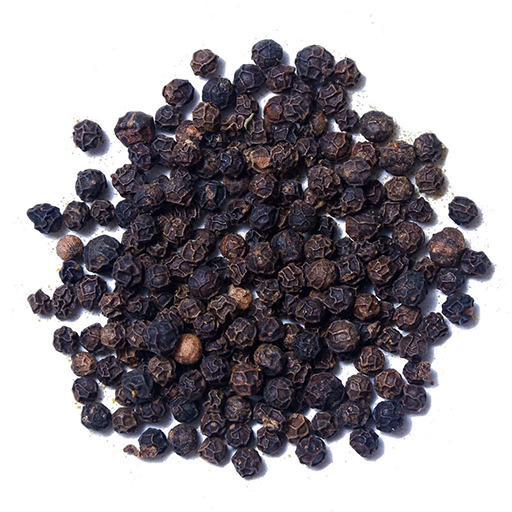
Black Pepper Nutrition Facts
Serving Size 100 g (about 3.5 Oz or 0.44 Cups)
| Amount Per Serving | ||
|---|---|---|
| Calories 251 | Calories from Fat 28 | |
| % Daily Value* | ||
| Total Fat 3.26 g | 5 % | |
| Saturated Fat 1.4 g | 7 % | |
| Polyunsaturated fat 1 g | ||
| Monounsaturated fat 0.7 g | ||
| Trans Fat 0 g | ||
| Cholesterol 0 mg | 0 % | |
| Sodium 20 mg | 1 % | |
| Potassium 1.33 g | 1 % | |
| Total Carbohydrate 64 g | 21 % | |
| Dietary Fiber 25.3 g | 100 % | |
| Sugars 0.64 g | ||
| Protein 10.39 g | 20% | |
| Vitamin A 10 % | Vitamin C 0 % | |
| Vitamin E 0 % | Vitamin K 0 % | |
| Vitamin B-6 15 % | Calcium 44 % | |
| Magnesium 42 % | Iron 53 % | |
Calories per gram:
Fat: 9 | Carbohydrate: 4 | Protein: 4
Source: USDA's Nutrient Database




